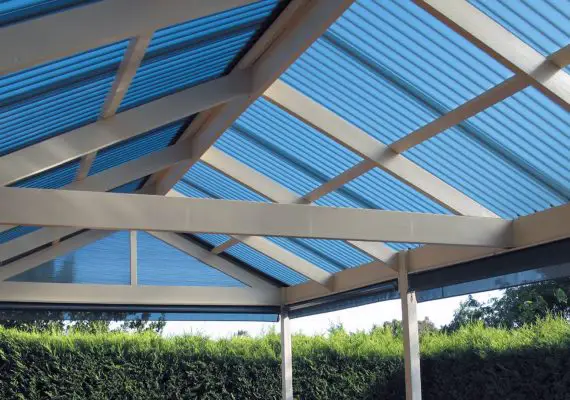What Does A 9 12 Roof Pitch Mean?
What Does A 9 12 Roof Pitch Mean?
A 9/12 roof pitch is a roof slope that rises 9 inches for every 12 inches of horizontal distance, or run. This angle is equal to 36.37 degrees.
A 9/12 roof pitch is the steepest standard slope and anything above a 9/12 is considered a steep slope.
Roofs with a 9/12 pitch are not very walkable for the average person and tend to shed water quickly due to their steepness.
When measuring a roof, it is important to take into account the pitch of the roof when estimating for materials as this affects the amount of materials needed.
Can You Walk On A 9 12 Roof?
It is not safe to walk on a roof with a pitch of 9/12 or higher. Generally, anything above a 7/12 pitch is considered non-walkable and requires extra equipment and cost for the customer.
Roofs with a pitch of 6/12 or lower are generally considered walkable, although it is still dangerous and not recommended.
It is important to consider the type of roofing material as well; slate or tile roofs should never be walked on, metal roofs should never be walked on when wet, and shingle roofs should only be walked on if the shingles are in good condition.
Additionally, it is important to consider whether you are qualified to climb on your roof before attempting to do so.
What Are The Risks Of Walking On A 9 12 Roof?
Walking on a roof with a pitch of 7/12 can be dangerous and should be avoided if possible. It is recommended that people who are new to walking on roofs avoid anything steeper than a 6/12 pitch. Walking on a metal roof is almost always a bad idea, regardless of the pitch.
When walking on a roof, it is important to wear appropriate shoes with slip-resistant soles and use safety equipment such as a harness and rope.
Additionally, it is important to take into account the temperature when walking on a roof. As a general rule, heat can pose a danger to roofing technicians when temperatures climb above 90 degrees Fahrenheit.
Most experts recommend that roofs have at least 30 degrees of slope (7/12 pitch) in order to handle high winds safely.
However, even experienced roofers should avoid walking on roofs with this steep of an incline due to the risk of injury or falling off the roof.
What Are The Safety Tips For Walking On A 9 12 Roof?
Walking on a roof with a pitch of 7/12 is not recommended, as it is considered too steep to walk on safely.
If you must walk on the roof, it is important to take safety precautions such as wearing a safety harness and having another person around to help hold the ladder in place.
Additionally, you should lean your body forward towards the top of the roof to help maintain balance.
It is also important to wear the right footwear, such as shoes with good traction, to prevent slipping. Finally, if possible, set up roof jacks for extra reinforcement and stability.
What Are The Advantages Of A 9 12 Roof?
A roof with a pitch of 9/12 or higher has several advantages, including better drainage of water and snow, improved energy management, more options for style and decoration, fewer snow worries, and increased durability.
A steep roof encourages the creation of larger attic areas which are good for long-term or seasonal storage.
Additionally, a steep roof allows for better air flow into the eaves and out of the ridge, helping to prevent ice dams from forming.
In comparison to a flat or low-slope roof (with a pitch of 1/12 to 4/12), a steep roof (with a pitch of 9/12 or higher) is more efficient at allowing water and debris to run off.
However, it may require extra fasteners and be more challenging to walk on. Ultimately, the best choice depends on climate conditions and personal preference.

